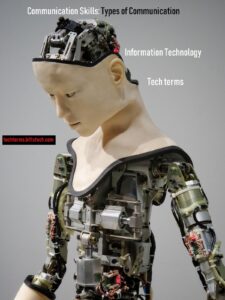Communication makes more effective when two persons communicate with each other smartly with full understanding.
Effective communication has some principles that make communication effective and barriers that affect effective communication.
Principles of Effective Communication
Effective communication makes communication smartly and delivered timely with the other person.
These are some principles that are following in effective communication. These principles are defined below-:
1)-: Clarity
The message you will transfer to the other person should be more clear and in understandable language.
2)-: Attention
The receiver should be fully attentive in a communication process. we can say that, our message should have contain some solid points that receiver listen carefully.
3)-: Consistency
Our communication should be in a consistent manner which means consistency is necessary to make communication more effective.
4)-: Adequacy
Adequacy is important in all types of communication which means communication should be complete. It should never inadequate or incomplete.
5)-: Timeliness
Our message should be conveyed at a legal time otherwise the message will lose its importance and effectiveness.
6)-: Feedback
The communication must have feedback confirmation from the recipient to make the completeness of communication and to be more effective, feedback has own great advantage.
7)-: Economy
The communication should take place in a way that costs optimally. In other words, communication should not costly according to importance of messages.
Barriers in Communication
Communication may have not effective when the speaker speaks something and the listener listen to this but gets a different meaning of the speaker’s messages. So that communication is also called miscommunication that can lead to many problems or barriers to effective communication. There are several factors or barriers, which are responsible for the way people view our messages.
These factors include:
(i) Lingual factors
Language can be a barrier to effective communication. For example, a Spanish man who only speaks and understands Spanish, would not be able to interact with an Indian woman who is only familiar with Hindi.
(ii) Environmental factors
The environmental factor does also matter to be barriers to effective communication. for example-: we can’t communicate with others in a better way if any type of bad smell exists at our nearby place.
(iii) Past Experiences
Past experiences do matter also such as if we have been communicated with others but something has in our mind, so when we communicate next time with the same person so we will do must retain our past experience with his/her.
(iv) Cultural influence
Cultural differences does matter also. for example -: if two persons are of different countries and communicate with each other, so we will see that both person uses different body languages, tones, gestures.
(v) Prejudice
Do not apply your own conceptions before communicating with others. prejudice makes a disadvantage to you and ruining your relationship with others.
(vi) Feelings
We all can very well relate to this. Sometimes, our feelings stop us from effective communication. If we are upset about something, we try to avoid conversation topics that remind us of the thing that is making us angry.
(vii) Personal factors
Personal factors are different for each. For example, lack of confidence makes communication difficult for some people.




